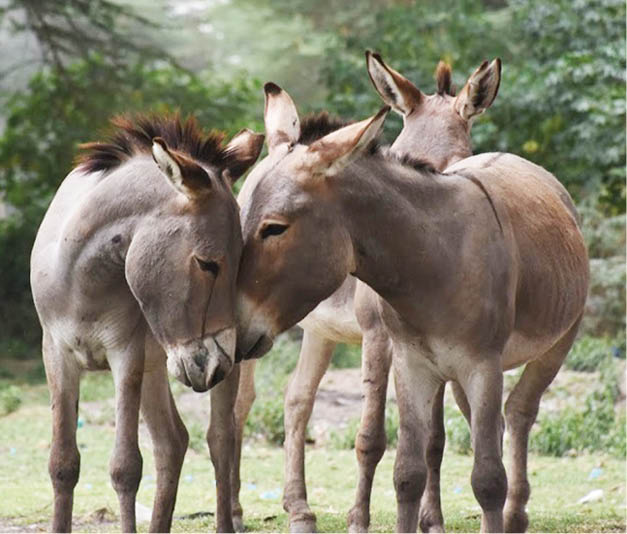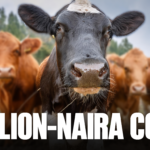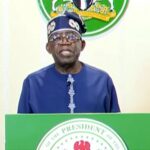I have followed with keen interest the steady progress the bill banning the killing and export of donkeys in Nigeria is making through the maze of the National Assembly. As readers may recall, there was a furore a few years back over the way and manner the population of our donkeys were being ravaged. Actually, ever since the mid-1980s the number of donkeys in both our cities and countryside have been reducing at an alarming rate.
I recall raising the issue in a piece titled: Donkeys and Nigerian Unity, on 6/6/2017 and a follow-up on 26/11/2019: Donkeys are Wining, where I reminisced the familiar sight of donkeys in the far North in the 1960s, mostly as working animals not only in the farms, but also in the cities. Where I grew up in Maiduguri, donkeys were ubiquitous in the streets, particularly on Mondays when the city market had its day. All the roads leading to the Monday Market were always clogged with heavy-laden donkeys from all directions. Probably more than half were coming from surrounding villages solely for market activities.
But all these slowly changed in 1970s with the advent of more motorcycles and motor vehicles into the country as we became more prosperous with the newly found oil wealth. The consequences were that donkeys became increasingly redundant as beasts of burden and started disappearing from the scene. At the same time, unfortunately, a market sprang up for donkeys in other parts of the country where their meat was found to be highly valued as a delicacy. The trade in donkey became lucrative, widespread and pernicious to their continued existence.
In the late 1980s, in Borno State which had the largest population of donkeys in the country, their disappearance became particularly noticeable. The Borno State Government felt so concerned for the fast disappearing donkeys that it took a memo to the 12 Northern governors meeting in 1990 requesting for a collective action to be taken for their survival. What has now transpired over time is that whatever actions the northern governors took at the time did not go far enough as the fate of donkeys has continued to be in dire straits.
But the worse was to come for donkeys. In the 1990s they suddenly became export material to China. Donkey skin became highly sought after as an ingredient in the preparation of ejiao, a herbal concoction taken for skin health and reproductive prowess. This Chinese medicine used to be only for the rich and powerful members of the society, but in the last 30 years a sharp increase in disposable income in China has upped the demand for ejiao. The increased demand which cannot be met locally in China meant that they had to reach out to source donkeys from herds in other parts of the world.
The statistics are glaring and grim enough. China had 11 million donkeys in 1992 which due to sharp rise in demand for ejiao had tumbled the number to 4.6m in 2017 and at the last count in 2019 was down to 2.6m according to a report released by The Donkey Sanctuary, an international animal welfare and rescue charity transforming the quality of life for donkeys, mules and people worldwide. This meant that in the last many years the China ejiao industry had to seek for donkey skins from wherever at whatever price to feed the insatiable appetite of its burgeoning middle class.
Though one could hardly lay hands on any statistics affecting donkeys in Nigeria one could observe a strong correlation between the high demand for donkey skins in China, the curious one-way trade towards that country and the depletion of the donkey herd in this country as well as in many other African countries. The worrying part of the donkey skin trade is that there had been no concerted and coordinated effort to replenish the donkey herd in Nigeria.
This must have bolstered the House of Reps in 2018 to take up the gauntlet to make a legislation towards regulating the trade through the instrumentality of a bill sponsored by Garba Datti Muhammad a member representing Sabon Gari Constituency of Kaduna State. The bill stipulates a stiff 10 years imprisonment for “the killing of donkeys in Nigeria and the exportation of donkeys or their carcasses or derivatives out of Nigeria.” It is comforting to those who advocate the regulation of donkey business that this bill has already been passed by the House of Representatives.
It is even more encouraging that the Senate is considering a similar bill being pushed by none other but the Leader of the Senate Leader himself, Yahaya Abdullahi (Kebbi North). There might be a need for reconciliation when the Senate bill is passed because it envisages the ranching of donkeys which had drawn the ire of the opposition. In any case, Rep Garba Datti Mohammed who had travelled widely to wherever there is a large population of donkeys, Ethiopia, China, India, China etc., says that ranching might not be necessary as donkeys are very slow breeders and might not be profitable to ranch.
I guess it is not yet uhuru for the donkeys, but if one considers the amount of energy dispensed by their two strong advocates in the National Assembly, there is succour coming for these iconic beasts of burden.

 Join Daily Trust WhatsApp Community For Quick Access To News and Happenings Around You.
Join Daily Trust WhatsApp Community For Quick Access To News and Happenings Around You.


